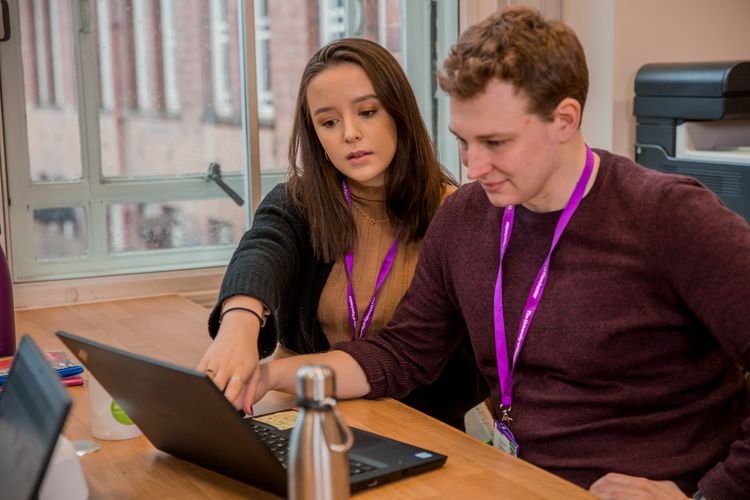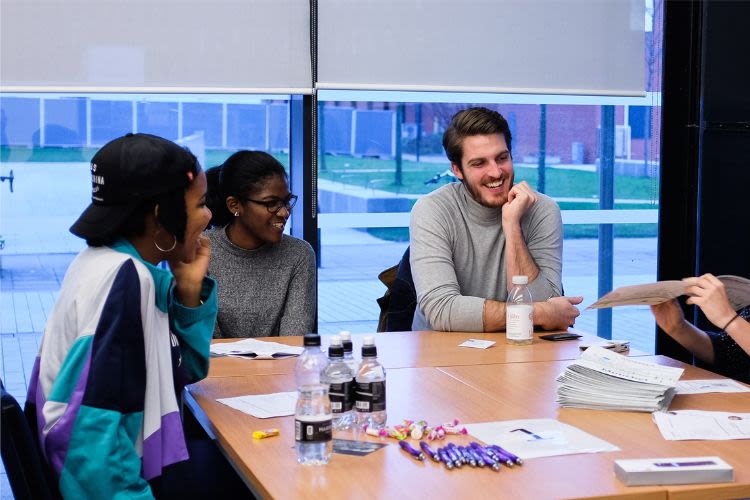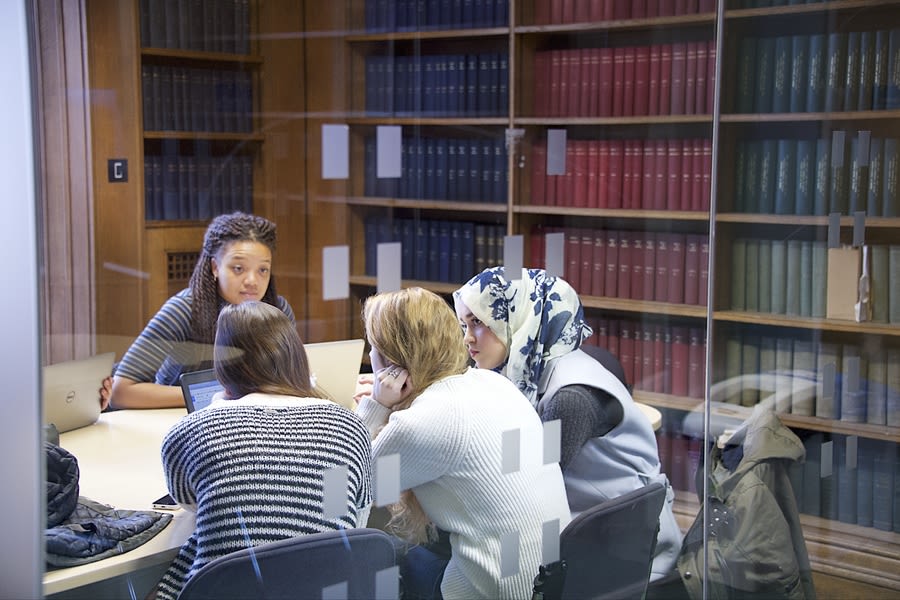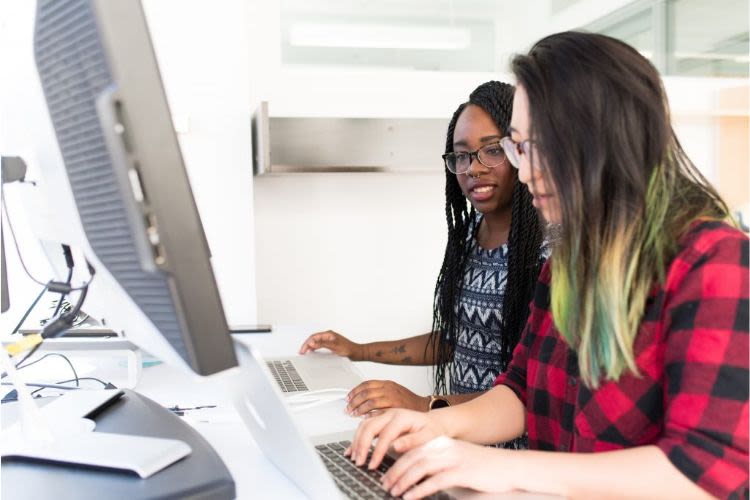Open Principles and Equality

Open Knowledge in Higher Education (OKHE)
As part of the Library’s credit-bearing teaching offer, we run Open Knowledge in Higher Education (OKHE), a curriculum unit for staff taking the Postgraduate Certificate in Higher Education (PGCertHE).
During 2020/21, we had to move OKHE entirely online, with a mix of synchronous and asynchronous activity. Being a blended unit with an already strong online component, we were well-placed to do this. However, this unexpected move demonstrated the value of running the unit entirely online, which we decided to do so for 2021/22. Participants commented on the greater flexibility this afforded them, especially for staff who take the PGCertHE in addition to their work roles.
We run OKHE in a way which allows current participants to read and respond to the work of graduates of the unit, and in turn, for their work to be seen by others in the future. This creates connections beyond the current cohort, contributing to an open online publication of over 200 posts and 100 contributors. While we have in the past featured graduates of the course as guest speakers in live sessions, busy schedules have often been a limiting factor. In 2021/22, we found that flexibility was a benefit to staff as well as students; the online format allowed us to invite back more past participants, which in turn has a positive effect for students.





Widening participation
The Library’s training and skills programme continues to engage with students from widening participation backgrounds. A strong partnership with the Access Manchester programme saw continued contributions to the Manchester Access Programme, Manchester Distance Access Scheme and the Manchester Gateways programme for 11–16-year-olds. Building on its successful first year, the award-winning Library Peer Network continued to publish content to support students in higher education from under-represented backgrounds.
We continue to commit to interdisciplinary teaching and learning with significant partnerships on the University’s Initial Teacher Training programme and our widening participation expertise embedded into ground-breaking courses including the Manchester Histories Workshop for first year undergraduates. This course connects students to collections, outreach students and educators.
Sector wide contributions meant that the Library Student Team -- strong advocates for widening participation voices in higher education-- spoke at several national events including the Advancing Access Russell Group Teacher and Adviser Conference.

Re-use of our open resources
The Library has long been recognised for its open approaches, including making our learning resources available for public access, and licensing them openly to enable reuse by other educators. This open approach has clear benefits to learners and educators at The University of Manchester and beyond. Over the years, people from every continent and most countries have accessed our online resources.

Since 2018, we have made an effort to make more of our session plans openly available, such as embedding support in the curriculum and other areas of the University. This not only facilitates reuse by other educators, but also makes it easier for us to collaborate and provide support asynchronously with academic and support staff.
2021/22 was our biggest year yet. We openly published around 213 session plans, tripling our total to 320. This helps us to reuse more of each other's work internally, but we are not the sole audience. Session plans published in 2021/22 were viewed over 7,000 times, but we are not always able to track who is using and reusing our resources. Nevertheless, the high numbers of views are a reminder of the importance of our work.

EDI Working Group
Following the review of the Library’s Equality, Diversity and Inclusion (EDI) Group in September 2021, a new Working Group has been formed to further the Library’s progress towards fulfilling the University and Professional Services’ EDI goals.
The formation of this group supports better communication and accountability among our Library teams and inspires new equitable, diverse and inclusive ways of working. The EDI Group includes representation from all Library Directorates, the University’s EDI Directorate and the Students’ Union.

One of the group’s first points of action was to rethink its name, agreeing that it will be called the ‘Equity, Diversity and Inclusivity Working Group’, emphasising that with equity, the group ensures all staff are treated in a manner that is just and fair.
The group is focusing on two strands:
Enhancing our EDI activities and understanding in the Library:
- Sharing of best practice across the Library and beyond by engaging with sector-wide groups and with activities taking place in every Library Directorate
- Supporting and engaging with EDI work presented at the Library’s ‘Together’ conference
- Establishing Library support measures for the Professional Services EDI goals
Establishing a programme of EDI work for the Library:
- Creating and embedding an EDI action plan for the Library, linking to the University’s updated EDI objectives
- Bringing together colleagues working on EDI activities across the Library, to build into a strategic programme of work
The Library’s Management Group is actively supporting the new Group’s activities and looks forward to a year of action and learning to push forward the EDI agenda in the Library.